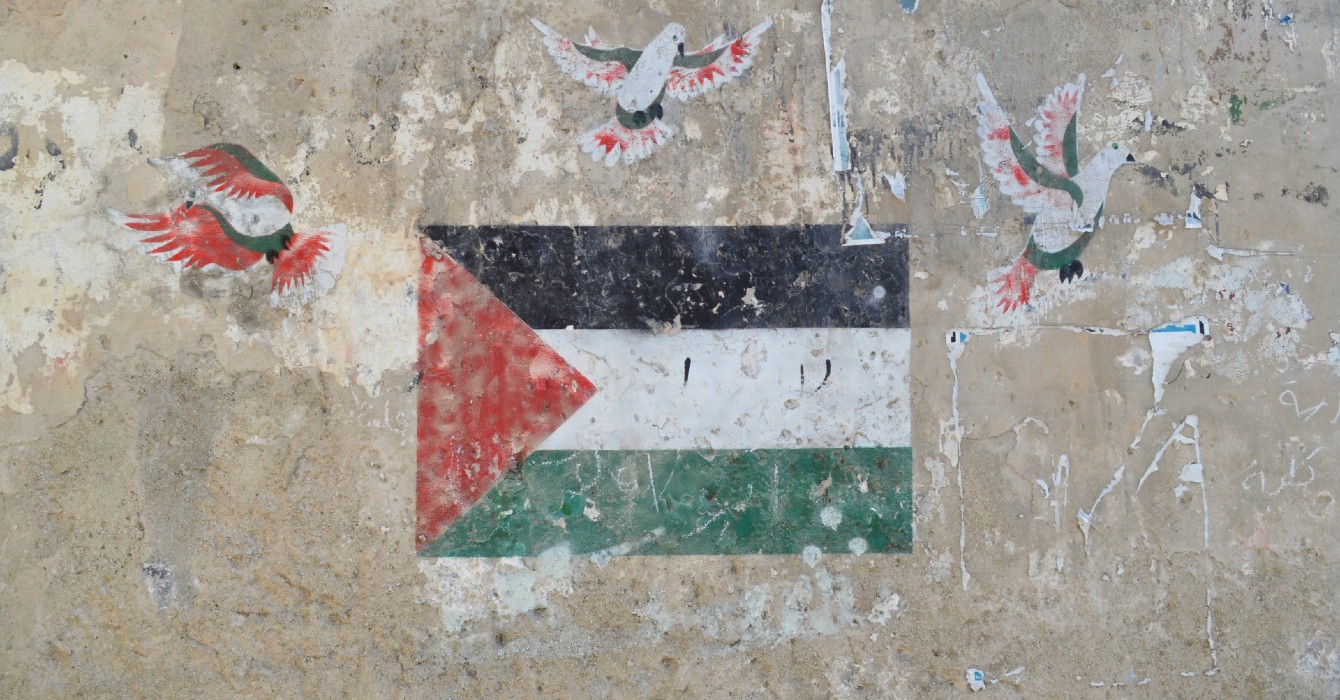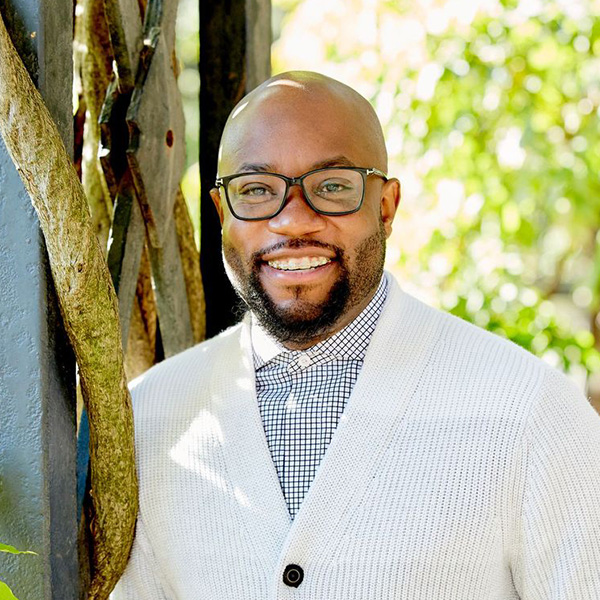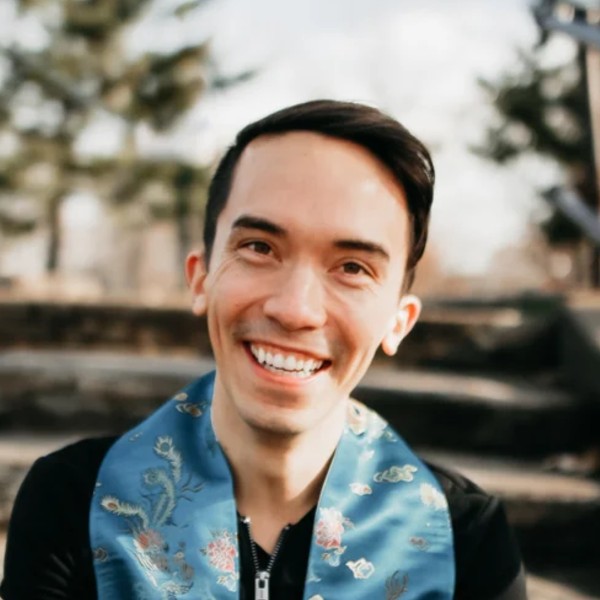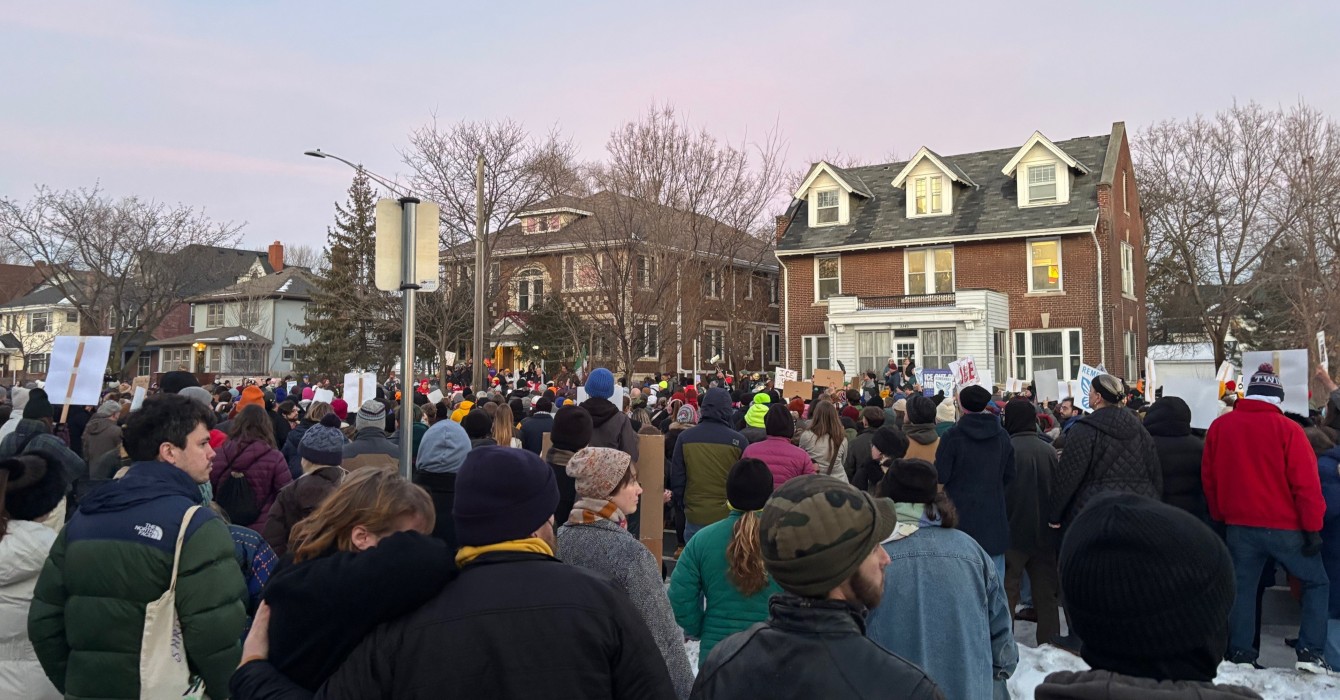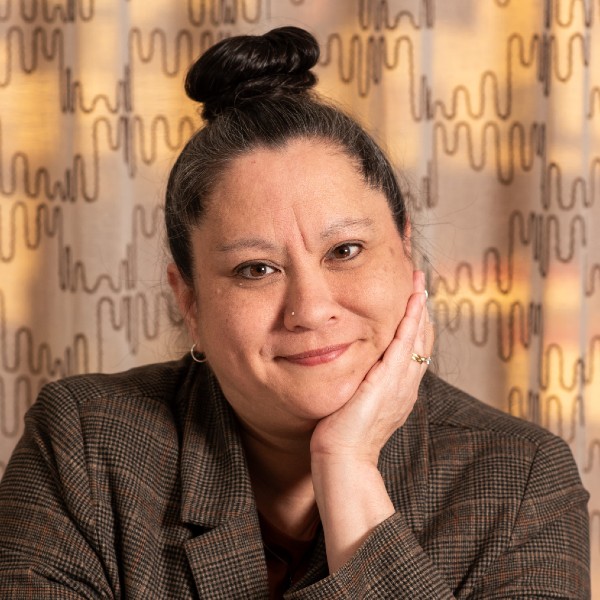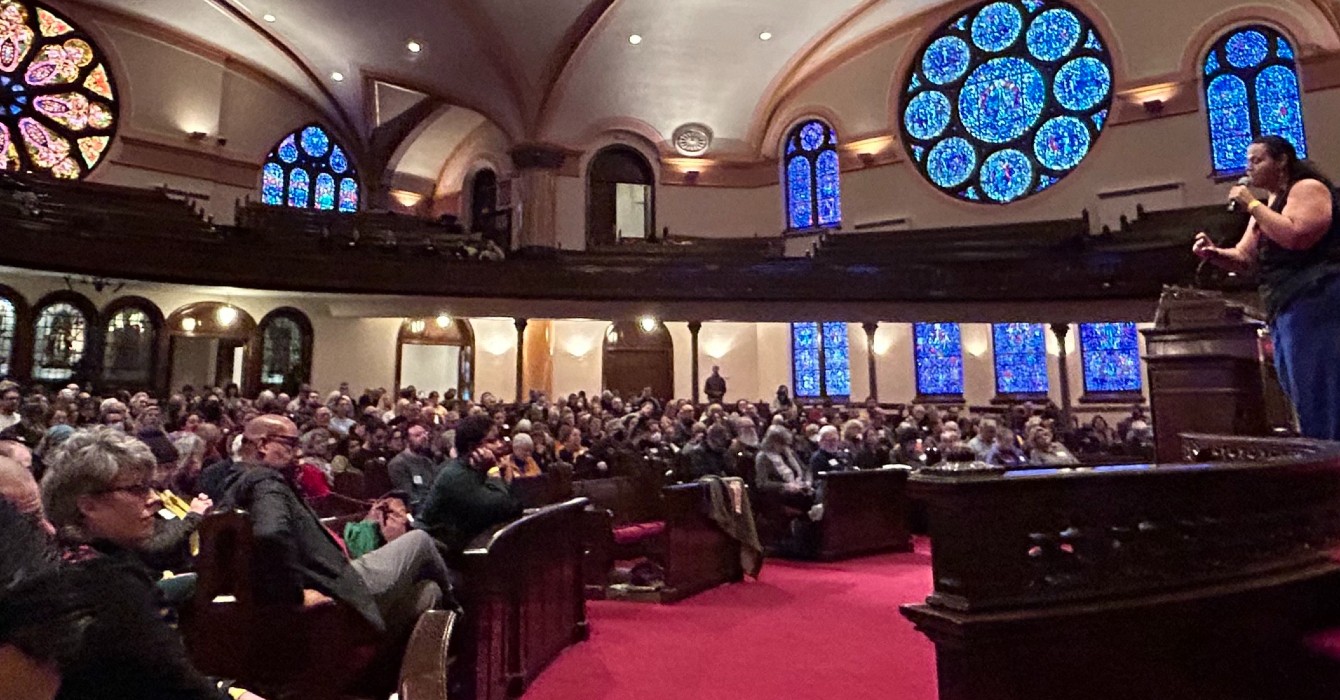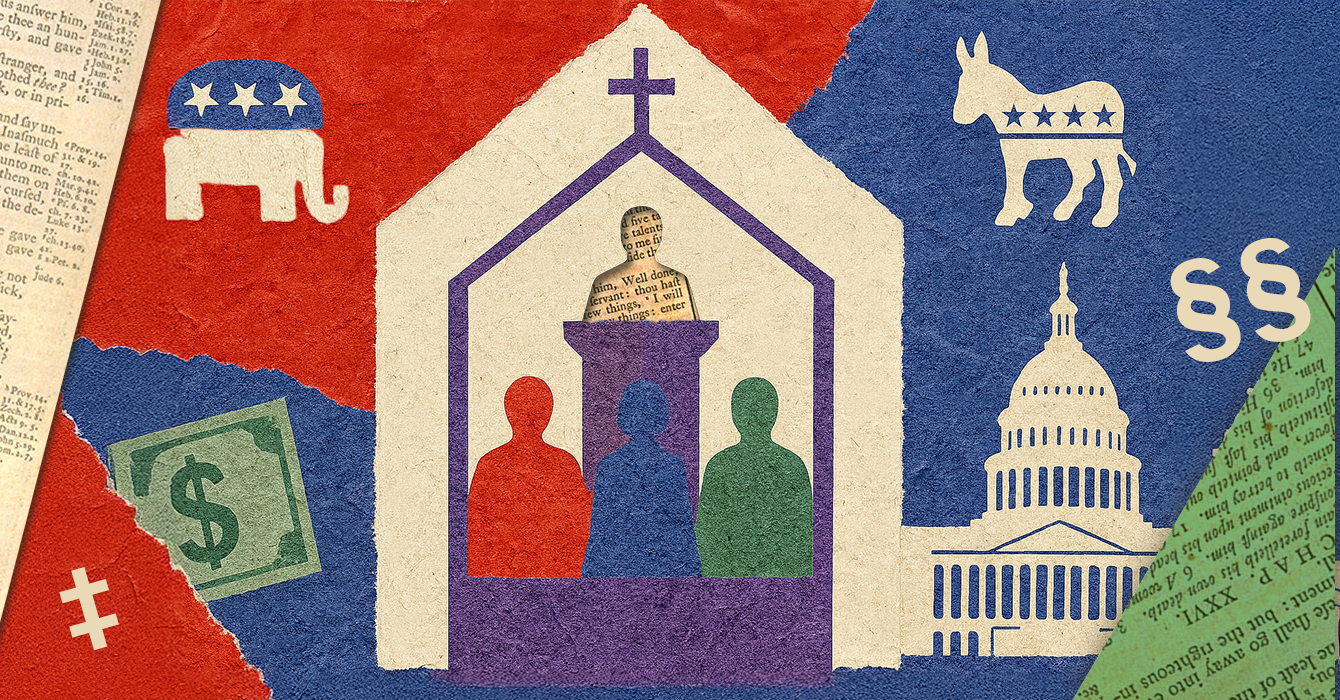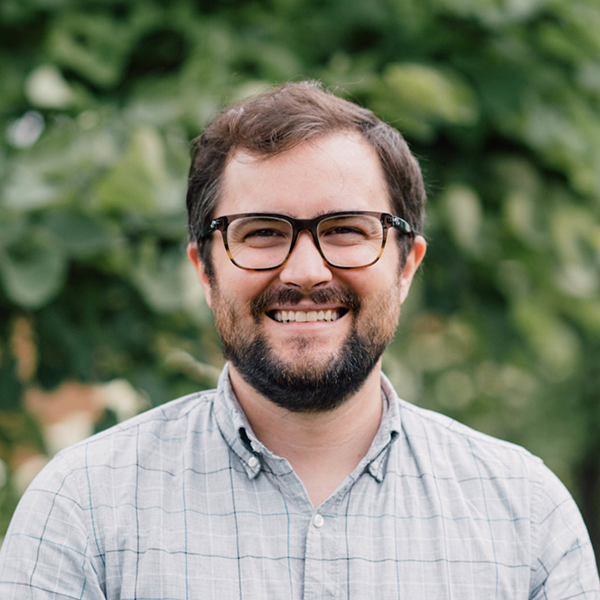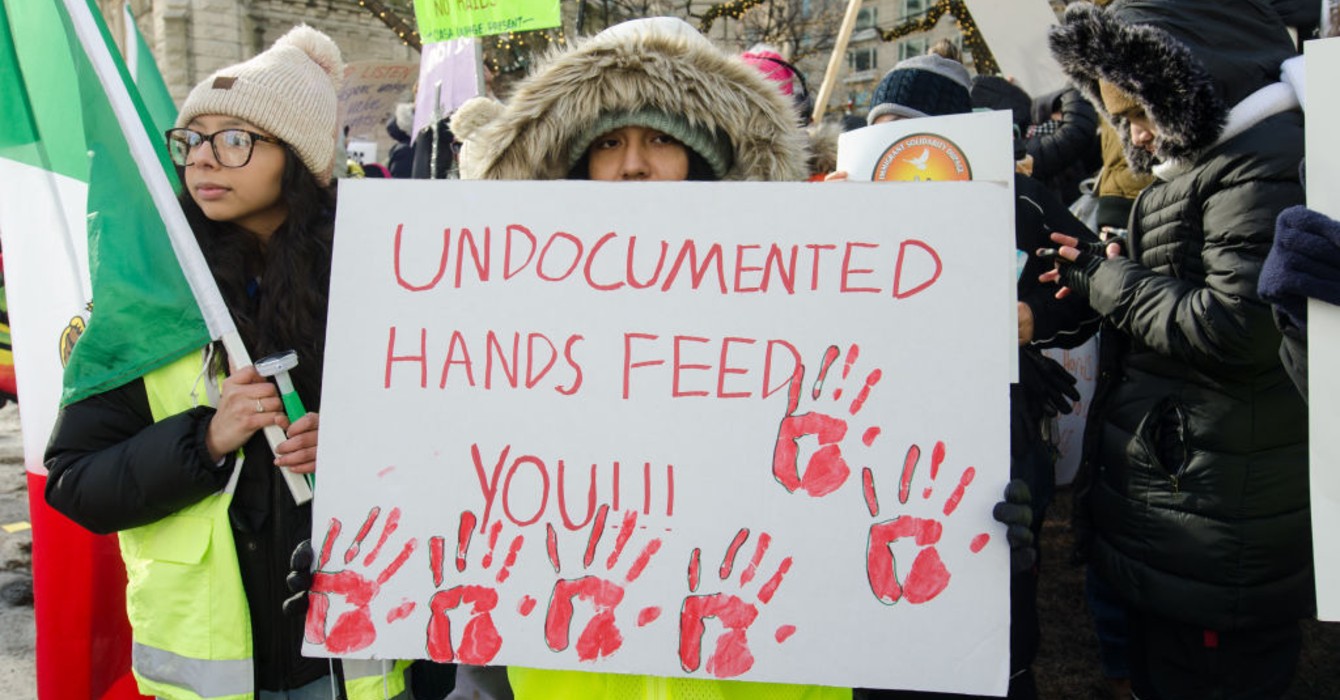That Black people, including Black clergy, express moral opposition to war and systemic domination should not raise eyebrows in America. As the Rev. Barbara Williams-Skinner, co-convener of the National African American Clergy Network, explained in The New York Times, “Black clergy have seen war, militarism, poverty and racism all connected.”
Black Christian traditions took form in the soil of antebellum slavery, a response to white Christian slaveholding and segregation. The protest traditions and personal pietism of Black Christianity pivot around liberation from domination.
There are no winners in war, only those who lose a little less. No one is winning in Gaza, where the tragedy is ever-growing: as of this writing, more than 34,000 Palestinian deaths, 1,200 Israeli deaths, 200 abductions and another 77,000 people injured. Children are bearing the brunt of genocidal inhumanity in a land that is holy for its residents and for many faith traditions of Abrahamic lineage.
Mass violence begets mass violence, damning us to a closed circuit of tear-stained faces of the living and blood-soaked streets from the dead. Since Oct. 7, 2023, images of destruction, rubble, injury and death have dominated our timelines and televisions.
Though far from homogeneous, Black pastors should represent the moral and power interests of Black communities. In February, the Rev. Stephen A. Green, founder of Faith for Black Lives, organized a peace pilgrimage for Gaza from the Liberty Bell in Philadelphia to Lafayette Park in Washington, D.C., calling for the immediate release of the remaining hostages and a permanent ceasefire.
“We walked 150 miles to push the Biden administration to demand a ceasefire to protect the lives of all precious Palestinians and to pursue the beloved community,” Green said.
“The Black prophetic tradition calls me to do justice, love mercy and walk humbly with God as we speak out against genocide, occupation and war.”
A tenacious humanity — core to the love ethic embodied by Jesus the Galilean carpenter — endured the gutting punch from Hamas’ terrorist attack and the resulting humanitarian catastrophe.
Black clergy, in solidarity with the dead, dying and vulnerable in Gaza, hold both forms of mass death-making together without slouching into the penchant to privilege some bodies and lives over others, offering morally segregated interpretations of violence.
The Rev. Kelly Brown Douglas wrote for Religion News Service in March, “Our humanity, that which signals what it means to be created in the image of a compassionate God, is fundamentally grounded in our ability to have empathetic regard for one another — to recognize the suffering and pain of another as if it were our own.”
Within our national context, Black and Jewish Americans have often been allies, united by our mutual commitment to justice, not simply our shared history of oppression. That must not be undone by opportunists who care nothing for us beyond attempting to divide us over this or any other issue. Black faith and civil rights leaders enjoy long public records of rejecting antisemitism and Islamophobia in the U.S., framing both as unique manifestations of whiteness and racism.
Iconoclastic Americans like James Baldwin and Huey Newton excoriated the Israeli-Palestinian conflict as part of their resistance to imperialism and American militarism. The Rev. Dr. Martin Luther King Jr. expressed dismay about the land conflict in the region after a visit in 1959. He had “questions of doubt” about Israel’s declaration of war against Jordan, Syria and Egypt in 1967.
The current horrors in the Middle East carry a longer, more complex history than many anemic biblical misappropriations and the corporatized media allow us to appreciate. Moreover, this history of war and displacement, bombs and bloodshed leads directly to the White House and Pentagon from 1948 to the present.
“Well-guided” missiles in Gaza result from misguided public morality in Washington. The slow death of the human spirit here is the result of American-funded genocide there. The slow death of democracy here couples with settler colonialism and terrorism there.
In a nation built on land that was stolen from Indigenous people and on labor from peoples indigenous to the western shores of Africa, many in Black communities feel the angst of government-sponsored death, forced relocation, kidnapping and denial of rights. The legacies of chattel slavery and Jim Crow alive in the U.S. economy and politics are both a historical torment and current lived experience for many millions of Black Americans.
History teaches us that truth is the first casualty of war. The truth crucified in the Netanyahu-Hamas war centers on the mutual deservedness, inalienable dignity and fundamental value of Israeli and Palestinian lives. As a follower of Jesus, I see the imago Dei — the image of God — in all human beings as an essential property of God’s creational design. Our differences — Muslim, Christian, Jewish, American, Israeli and Palestinian — fill out the story of God in the world.
We are witnessing a war on the image of God as missiles topple hospitals, bombs strike humanitarian food suppliers, and the predominance of firepower indiscriminately dismembers civilian women and children. To the demise of our humanness, religious biases and heritages of hate upend universal human equality and egalitarian justice.
According to the French philosopher Emmanuel Levinas, we know God — the sacred — when we encounter the face of the other. He wrote, “The face is the other who asks me not to let him die alone, as if to do so were to become an accomplice in his death.”
When we understand the face of the other as revealing the face of God, the face demands that we do more and be more for the ones who are not us. Such a God concept highlights our undeniable responsibility to each other.
No humane theology sponsors mass death-making. For Christians, the body of Christ must take seriously the body of Jesus — marginalized, impoverished, terrorized, arrested and executed. Jesus comes from the womb of a formerly enslaved people, a conquered people, an exploited and crucified people. He died in a manger-to-cross pipeline. The best of the Black radical Christian tradition keeps this top of mind when making moral sense and theological meaning out of the happenings in the world.
Somehow, there remains a hunger for peace and liberation, a collective yearning for a future for Palestinians and Israelis unstained by terrorism, colonial occupation, open-air prisons, and food and land scarcity. The execution of a multilateral ceasefire in the region is the only pathway toward honoring the image of God in Gaza.
Israel has a right to exist in peace. The Palestinian state deserves full international recognition as a sovereign nation. Hostages need to be released immediately. Gaza must be rebuilt, resourced and repopulated by the people deracinated by this war.

